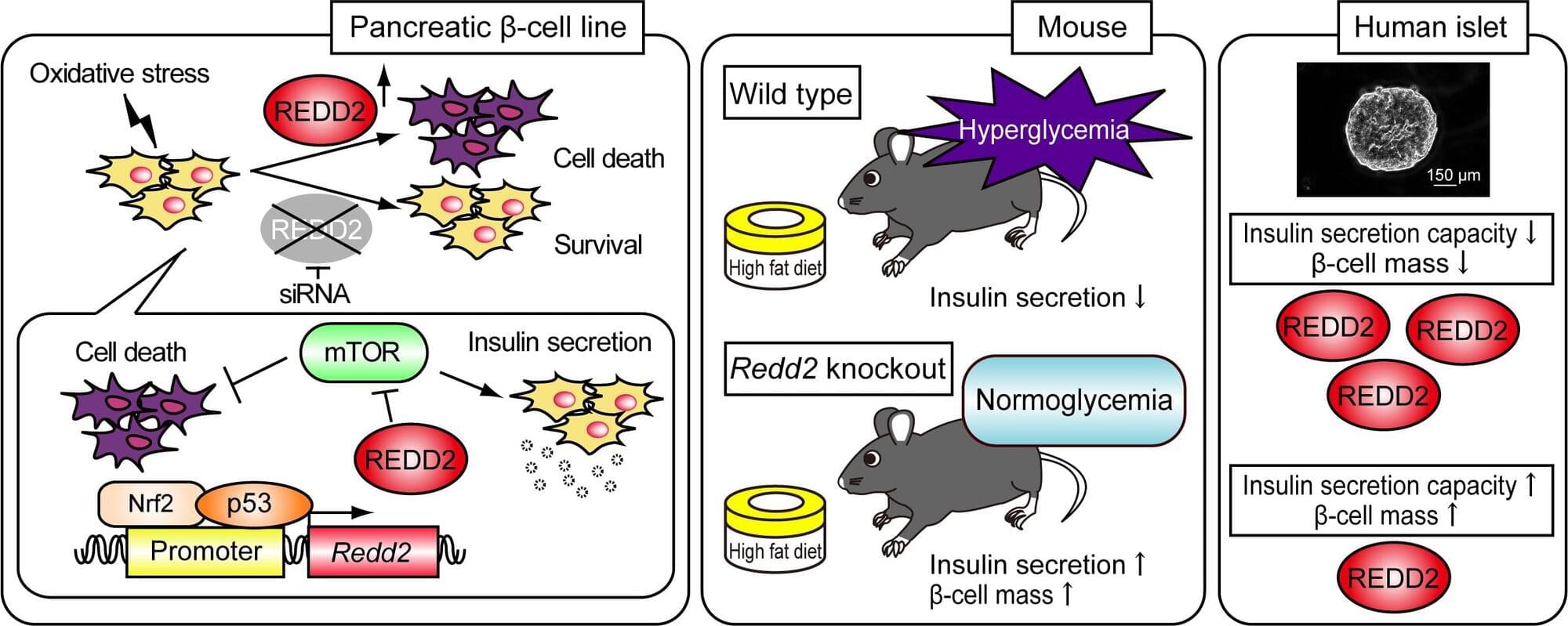Researchers from Osaka Metropolitan University have identified a gene that, when activated by metabolic stress, damages pancreatic β-cells—the cells responsible for insulin production and blood sugar control—pushing them toward dysfunction. The findings highlight a promising new target for early intervention in type 2 diabetes. The study is published in the Journal of Biological Chemistry.
While many factors can contribute to type 2 diabetes, lifestyle, especially diet, plays a major role in its onset. Genetics matter, but poor eating habits can greatly increase the risk of developing what is now often called a “silent epidemic.”
“Type 2 diabetes occurs when pancreatic β-cells, which secrete insulin to regulate blood glucose, become impaired due to prolonged stress caused by poor dietary habits, a condition known as oxidative stress,” said Naoki Harada, an associate professor at Osaka Metropolitan University’s Graduate School of Agriculture and lead author of this study.
